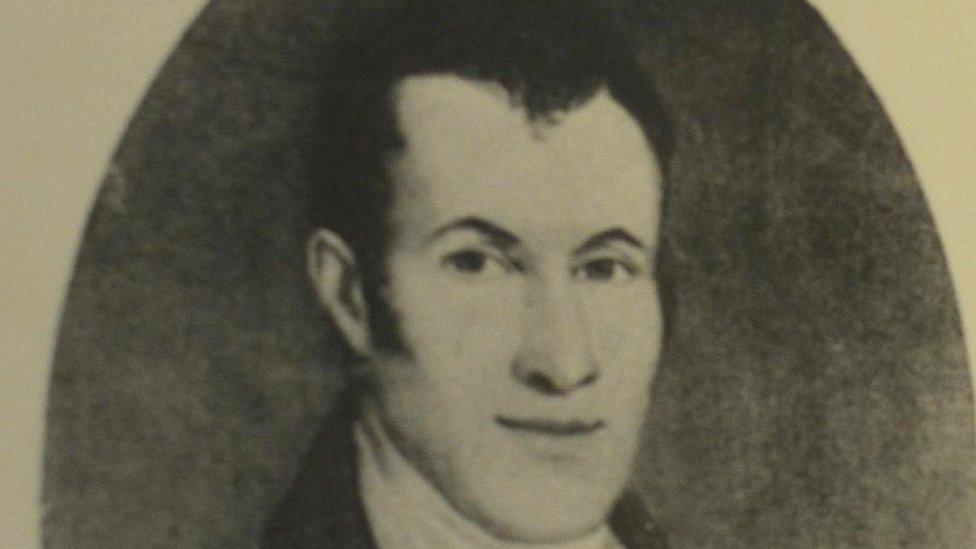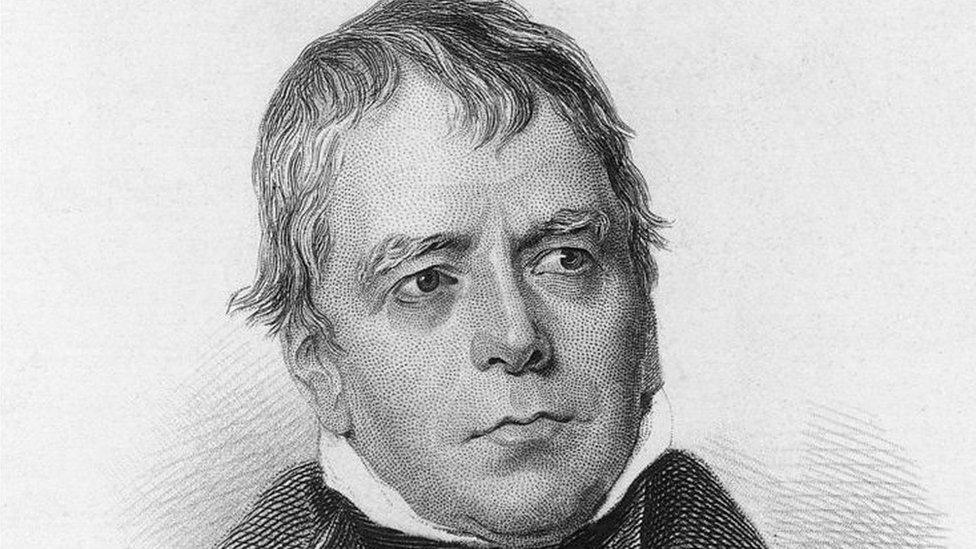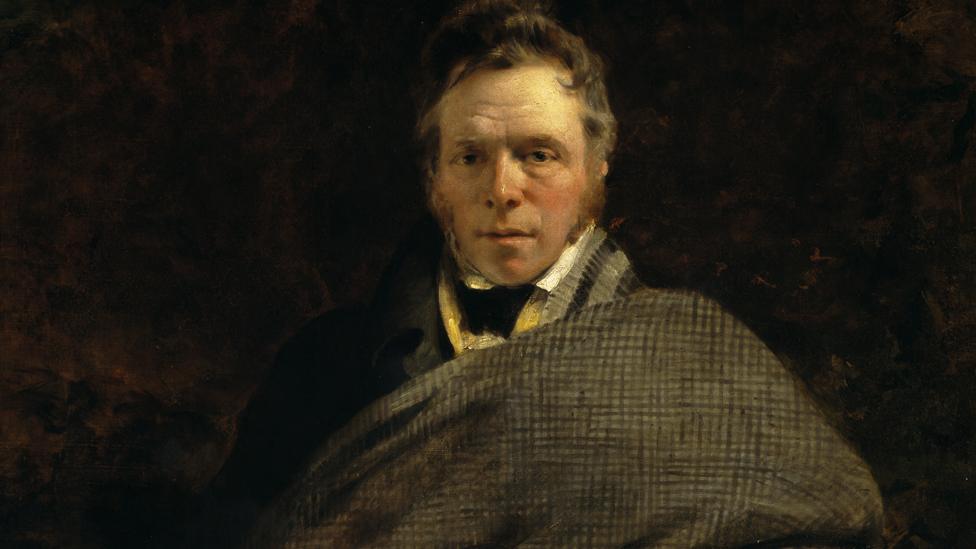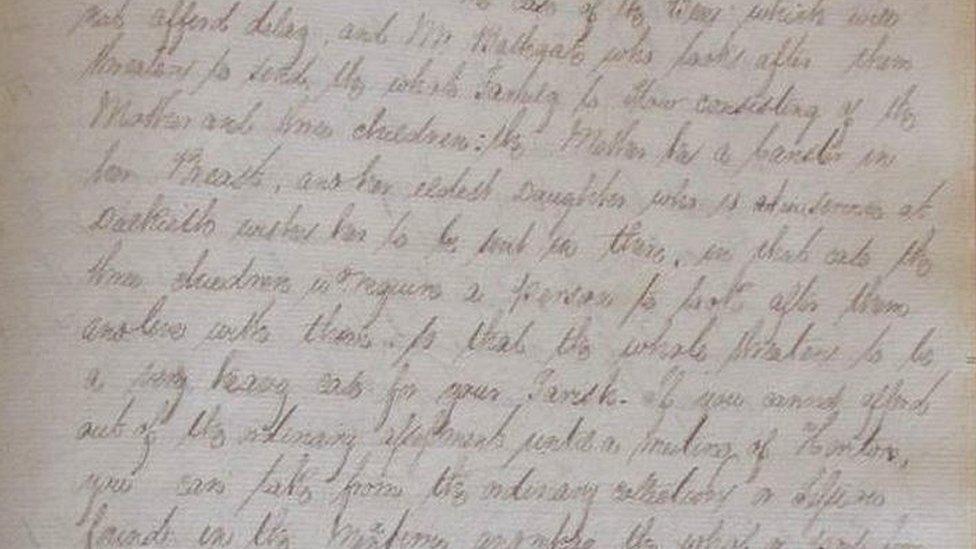Long lost letters shine new light on 1800s Borders life
- Published

George Craig worked as a lawyer, banker, factor and insurance agent in Galashiels during the early 1800s
Long lost letters discovered in a lawyer's cupboard are helping shine a new light on slavery, Sir Walter Scott and even the price of sheep.
The dust-covered books of correspondence from lawyer George Craig were found at the back of cupboards in a Galashiels law office.
Prof John Finlay has been archiving the letters, which date from 1821 to 1840, since their discovery.
He now plans to publish a biography of Mr Craig next year.
Three books of letters were discovered at the back of a cupboard in the historic offices of Iain Smith and Partners back in 2015.

Sir Walter Scott was one of Craig's more illustrious clients
It was only when a further four collections of letters and a cash book belonging to Mr Craig were uncovered in another cupboard four years later that Prof Finlay from the University of Glasgow became involved.
Throughout the lockdowns of 2020 and 2021 he worked his way through the 3,000 or so items of correspondence to archive names and places.
Prof Finlay, who is regarded as an authority on the history of Scots Law, said: "A friend of mine worked at the law firm and when the books were discovered he got in touch to see if I'd have a look at them.
"I was really surprised that these letters hadn't seen the light of day for almost 200 years.
"What is most interesting about them, for me, is that Craig wrote to so many people from so many different walks of life - weavers, farmers, lairds, writers and even slave owners - and you could follow each of their stories through the letters."

Poet James Hogg was another famous figure with links to George Craig
As well as a working as a lawyer in the Scottish Borders, Craig was also a banker, a factor and an insurance agent.
His clients ranged from notable authors such as Sir Walter Scott and James Hogg to local nobility such as John Scott of Gala, the eighth laird of Galashiels.
But for Prof Finlay, it is the vast range of everyday recipients and the depth of detail that make the collection special.
"The level of detail and the extent of coverage makes these letters particularly important," he said.
"I often come across individual lawyer's letters from time to time, and occasionally you get a run of them, but to have a whole series of letters over an extended period of time makes this collection almost unique.
"They give you an insight into Craig's career as well as the lives of so many people he wrote to.
"Because he had several lines of employment, he writes to such a plethora of people, making this collection really interesting from a social history perspective."

George Craig's letters provide a unique insight into Borders life from the 1800s
Mr Craig's clients also included many local farmers who left for new lives in Australia and north America.
He also looked after the affairs of several owners of Caribbean plantations from the Borders who were involved in the slave trade.
Prof Finlay added: "He wrote to lawyers in places such as Jamaica and London regarding the slave trade and plantations.
"He also corresponded with people in many countries, particularly New South Wales in Australia, where farmers had gone to forge new lives.
"But it is the sense of Borders life at the time that you mostly take from the letters - from sheep prices at local fairs, and concerns over property leases to the court business of the day."
Prof Finlay is currently finalising a biography of George Craig, to be published next year, and he has donated the books of letters to the Borders Archive Centre in Hawick.